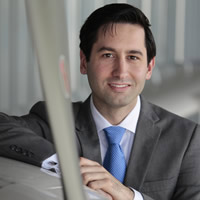For the Record: Honest mistake
When trying to fix an error can mean revocation
Medical applications are closely scrutinized by the FAA. The FAA commonly vets the accuracy of completed applications by checking driver’s license histories, reviewing pilot-provided medical records, and investigating safety hotline complaints.
When the FAA discovers that an airman did not answer a question correctly on a medical application, the agency often seems to presume that the airman knowingly made a false statement, unless an investigation reveals otherwise. FAR 67.403(a) provides for the suspension or revocation of any airman, ground instructor, and medical certificate and ratings held by any person who makes an “intentionally false” statement on an application.
Emergency revocation, rather than suspension, is ordinarily imposed when intentional falsification is alleged—and is immediately effective. If an appeal is not taken or is unsuccessful, the airman must wait 12 months before applying for new certificates and ratings. All required written, oral, and practical tests must be completed. While cases involving intentional falsification may also be subject to criminal prosecution by the Department of Justice, such action is rarely taken.
Yet not every mistaken answer is intentional falsification. FAR 67.403(c) recognizes that an answer may be just “incorrect,” rather than one the pilot knew was false, and limits any suspension or revocation to the airman’s medical certificate. This allows the airman to retain any other FAA-issued certificates, and immediately reapply for another medical certificate. Unfortunately, the FAA seldom alleges that a statement was merely incorrect.
Not correcting a mistake can make matters worse. If an incorrect answer is repeated on subsequent applications, each instance constitutes another possible violation. Moreover, the “stale complaint” rule that limits the timeframe in which the FAA can pursue legal action does not usually apply in intentional falsification cases. The FAA has prevailed in cases involving decades-old applications.
Once an application is submitted online it can no longer be changed, and an AME who is asked by an airman to make a change during the exam must follow a strict procedure to do so. However, it is worth noting that an application submitted online can only become part of the airman’s FAA records if an AME imports the application into the medical certification system using the confirmation number provided by the airman. If the application is not imported by an AME within 60 days, it is deleted.
When a mistake is only realized by the airman after a medical certificate has been issued, our attorneys have successfully helped pilots correct the error by sending a letter to FAA’s Aerospace Medical Certification Division. These letters are typically limited to the airman’s identifying information and a very brief explanation that provides the correct information, because any information the letter provides could be used against the airman in any subsequent legal enforcement action.
We have observed that the likelihood of the matter ultimately being referred for legal enforcement action depends upon the nature of the mistake. For example, correcting the omission of a visit to a health professional within the last three years may not result in any response from the FAA, while disclosing an event such as an arrest relating to driving while intoxicated is likely to result in an investigation.
In response to a letter correcting a mistake, the FAA likely will require the airman to provide any medical information or history that the FAA typically considers regarding that condition and address any medical certification concerns—the same as if the question had been answered correctly at the outset.
In the future, we hope to see the FAA’s compliance philosophy more consistently applied to cases involving unintentional mistakes on a medical application, to resolve the matter informally without the need for legal enforcement action. By recognizing that mistakes do happen and providing guidance on how to correct them, the FAA would further its goal of ensuring the information collected is accurate and aviation safety is not compromised. Until then, however, we recommend that airmen seeking to correct a mistake on a medical application consult an attorney for assistance before contacting the FAA.
Email [email protected]
The AOPA Legal Services plan is offered as part of AOPA’s Pilot Protection Services.



